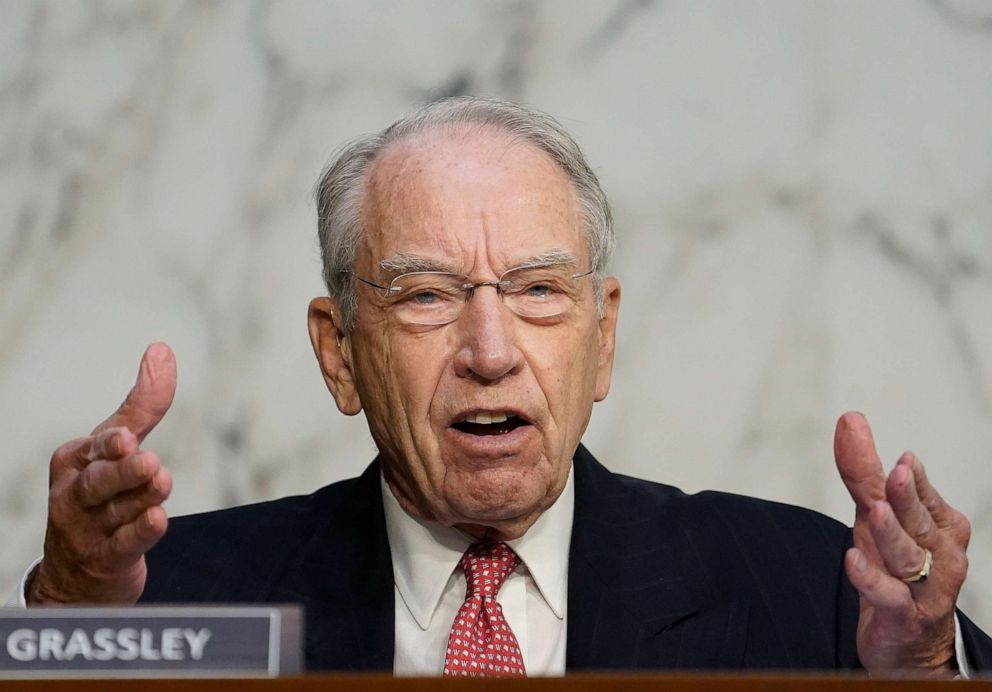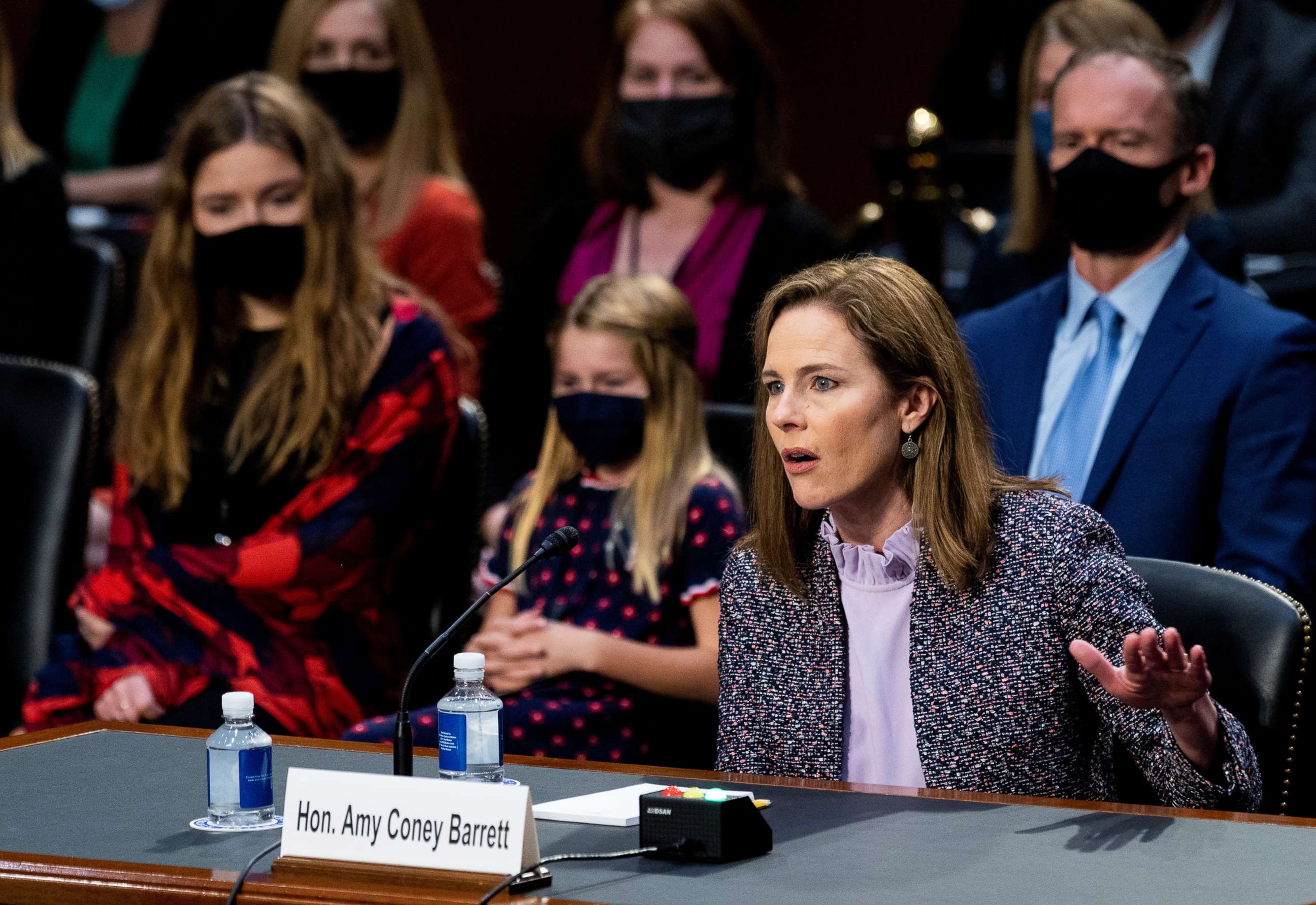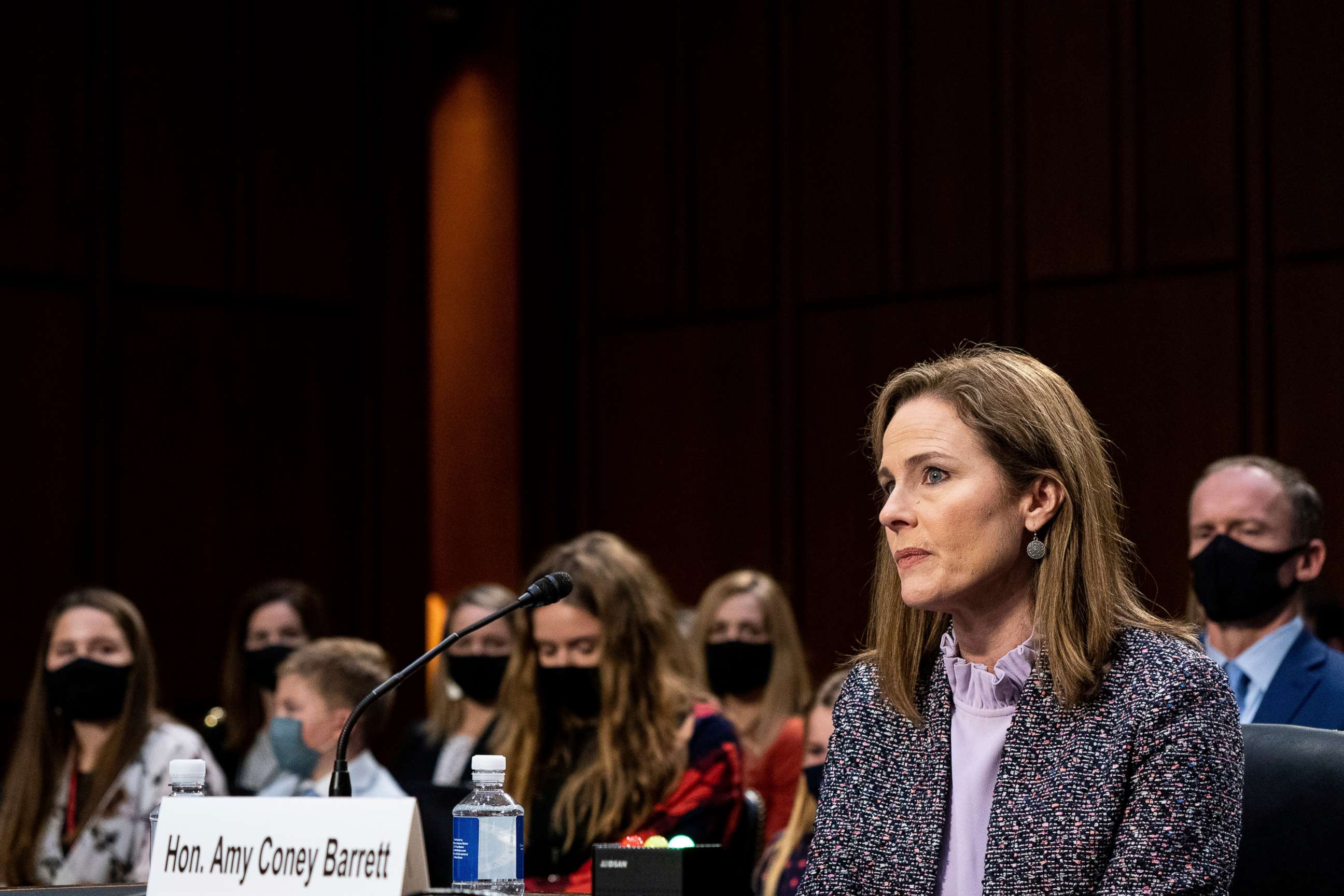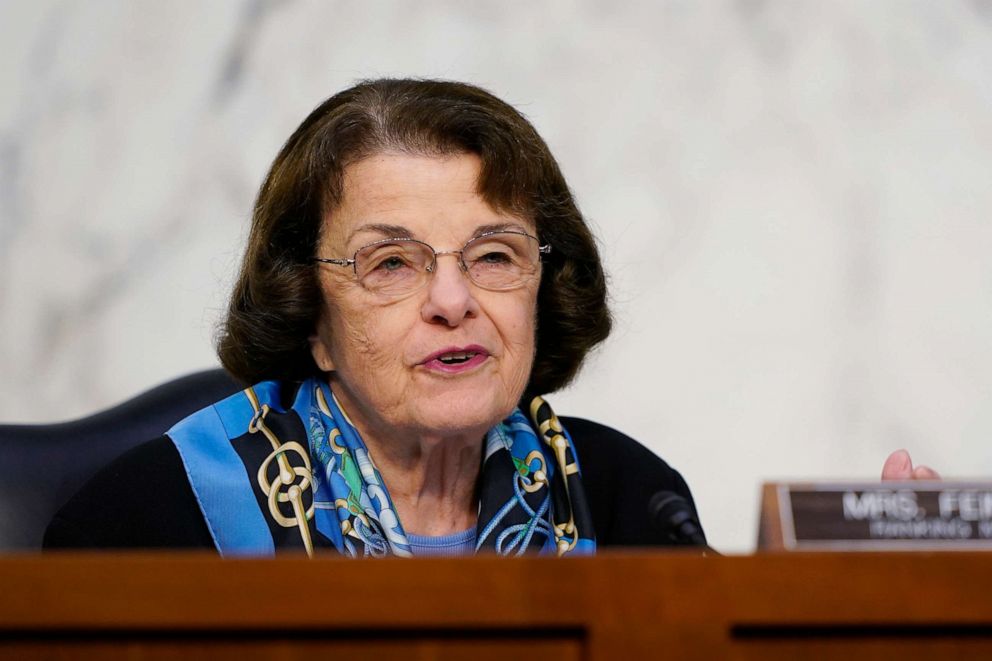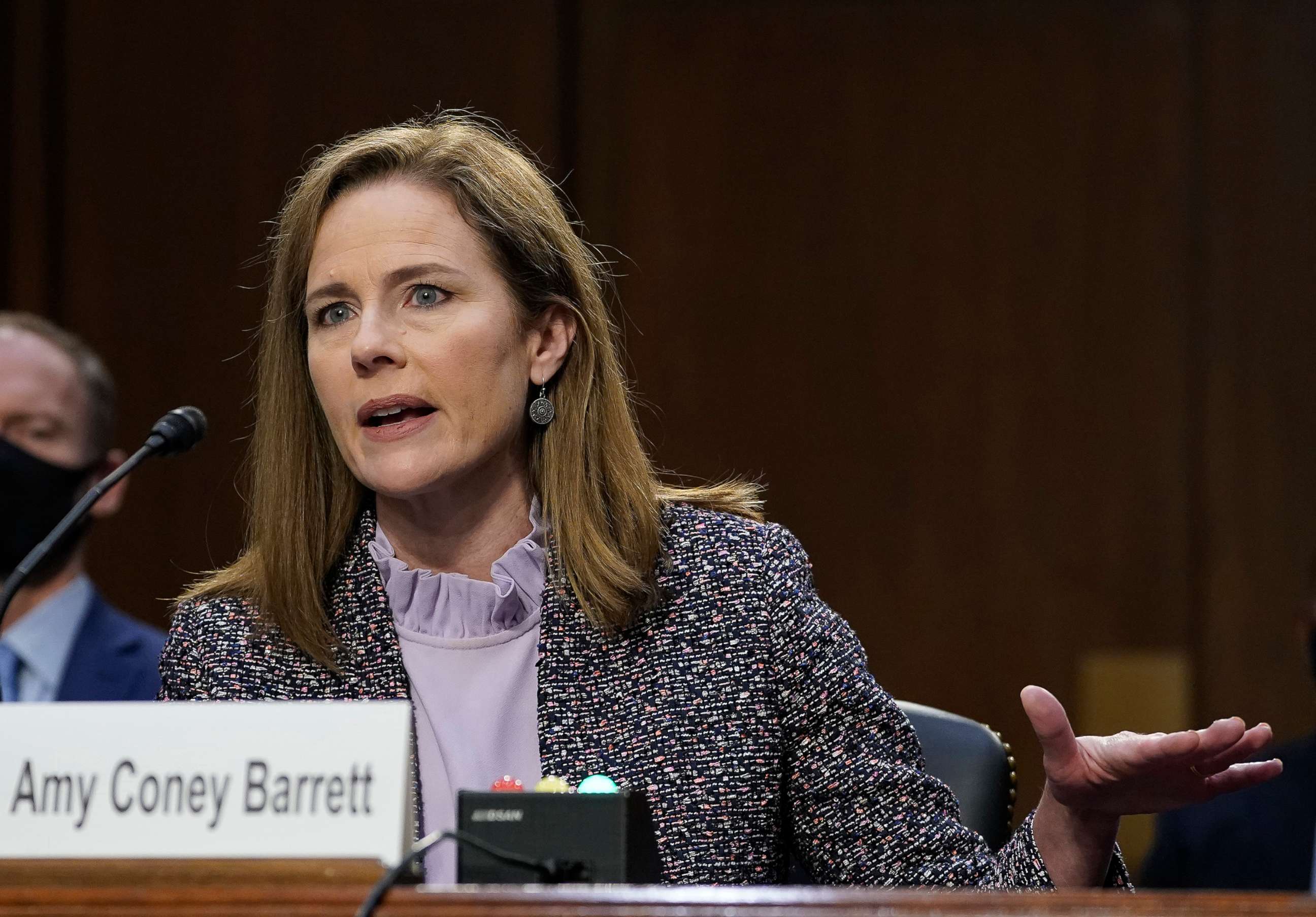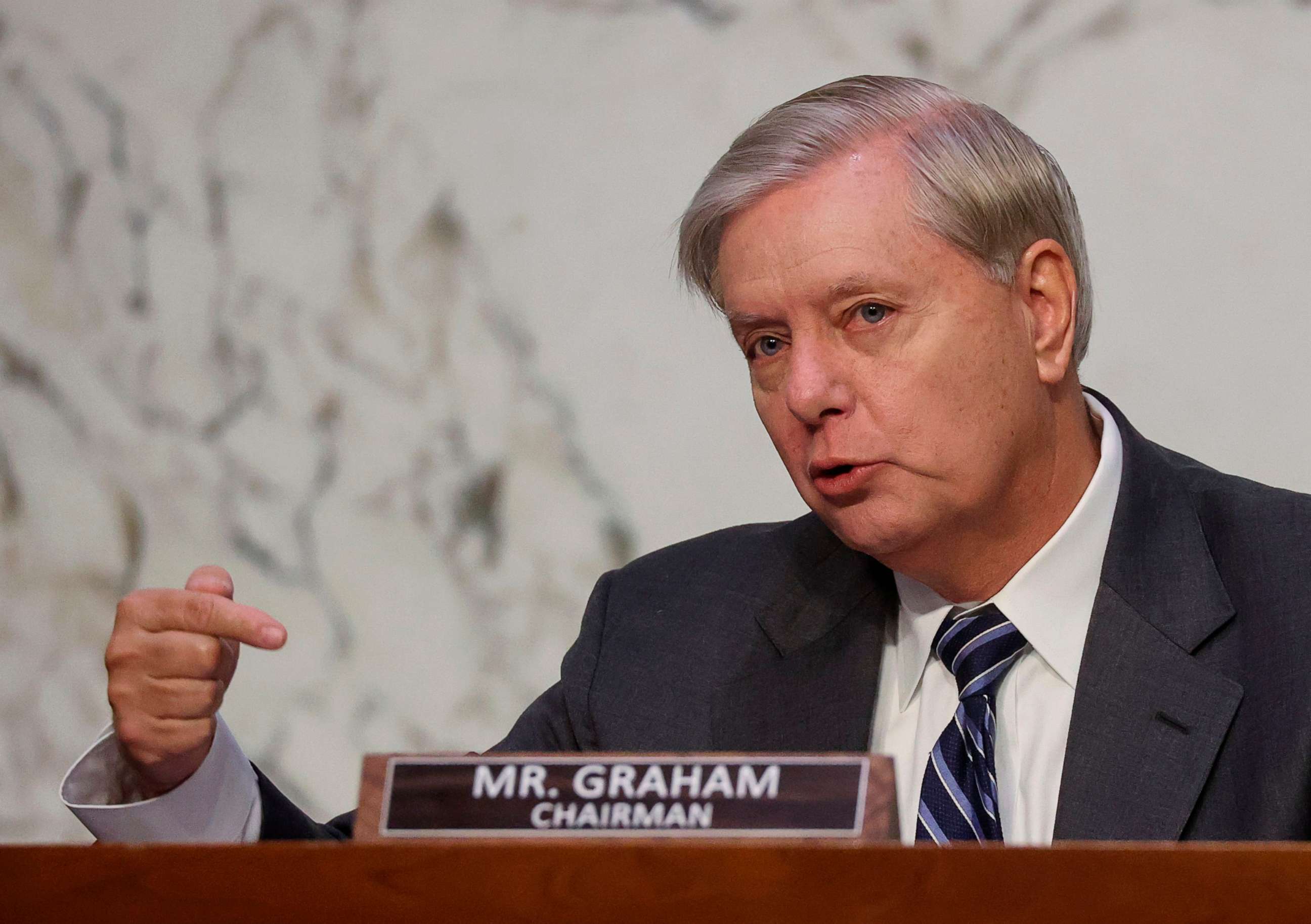Barrett declines to answer whether a president can pardon himself
Bringing up speculation that President Trump might pardon himself if he is prosecuted in cases currently being litigated in federal courts, Sen. Patrick Leahy, D-Vt., first asked Barrett if a president who refuses to comply with a court order is a threat to the Constitution.
Barrett said the Supreme Court can't control whether a president obeys its orders.
"Abraham Lincoln once disobeyed an order during the Civil War of the circuit court. A court can pronounce the law and issue judgment, but lacks control of how the political branches respond to it," Barrett began.
"Would you agree, first, that nobody is above the law? Not the president, not you, not me. Is that correct?" Leahy asked.
"I agree. No one is above the law," Barrett said.
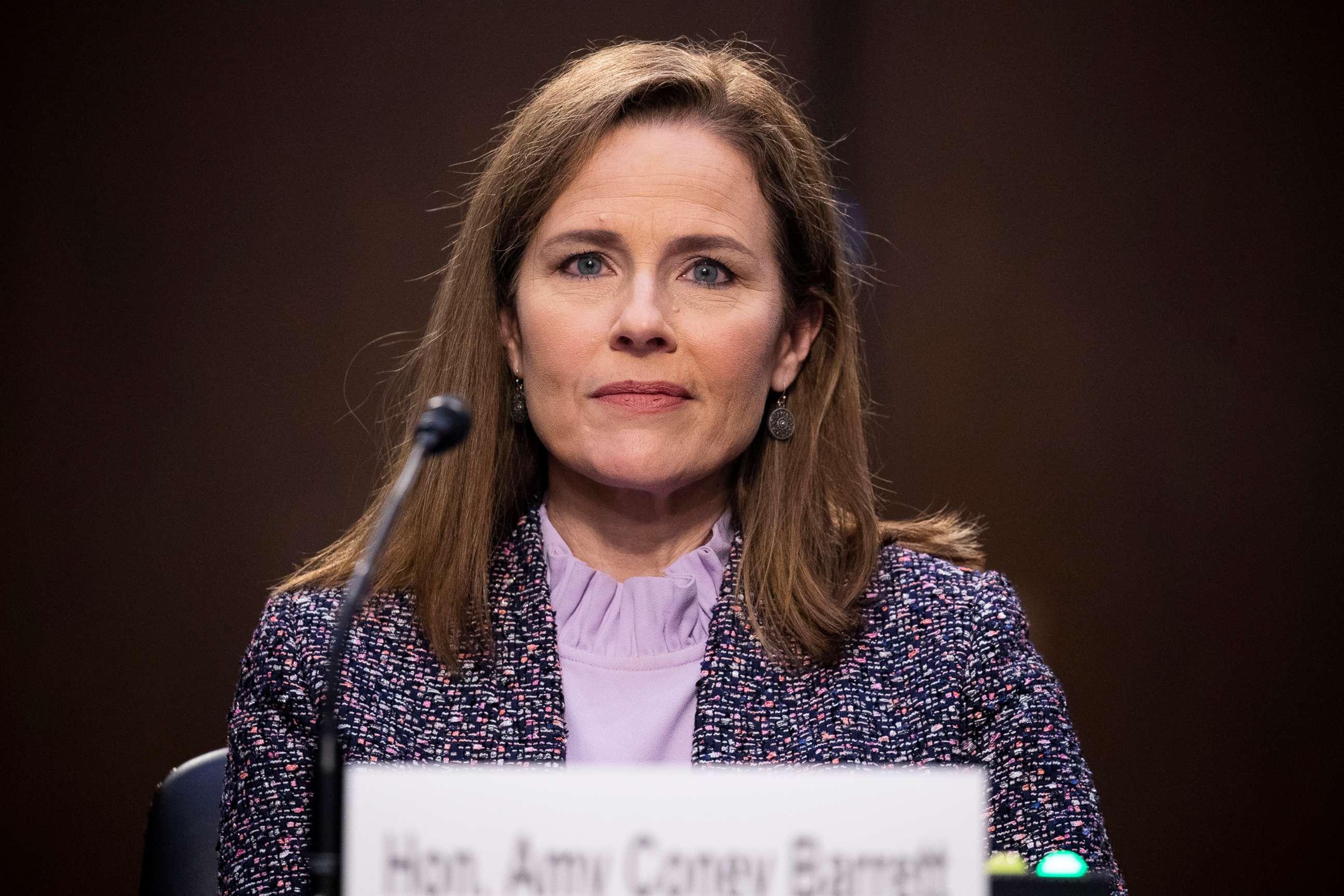
"And does a president have the absolute right to pardon himself for a crime?" he questioned.
Barrett declined to give a direct answer.
"Senator Leahy, so far as I know that question has never been litigated. That question has never risen. That question may or may not arise, but it is one that calls for legal analysis of what the scope of the pardon power is. So, because it would be opining on an open question when I haven't gone through the judicial process to decide it, it is not one I can offer a view."
Leahy said he found her answers "somewhat incompatible."
